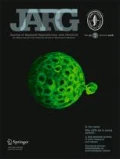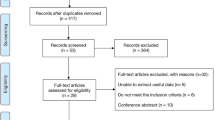Abstract
Purpose
To evaluate the association of single-nucleotide polymorphisms (SNPs) in the anti-Müllerian hormone (AMH) and AMH type II receptor (AMHR2) genes with ovarian response and clinical pregnancy outcomes in women undergoing controlled ovarian hyperstimulation.
Methods
In this prospective study, we genotyped AMH polymorphisms (c. -649 T > C, c. 146 T > G, c. 252 G > A, and c. 303 G > A) in 365 women and AMHR2 polymorphisms (c. -482 A > G, c. 622–6 C > T, c. 4952 G > A, c. 10 A > G) in 80 women undergoing controlled ovarian hyperstimulation for IVF.
Results
Higher doses of exogenous FSH and lower numbers of preovulatory follicles were noted in women having AMH c. -649 T > C and AMH c. -146 T > G polymorphisms, respectively. Overall, we found that the presence of a polymorphic genotype (homozygous or heterozygous) at positions c. -649 T > C, c. 146 T > G, c. 252 G > A, and c. 303 G > A in the AMH gene was associated with higher doses of FSH for ovulation induction (p < 0.001). Interestingly, a higher live birth rate was noted in women with a homozygous polymorphic genotype for all four AMH SNPs investigated while none of the women showing a homozygous polymorphic genotype at all AMHR2 SNPs investigated in this study had a live birth.
Conclusion
Our results show that presence of AMHR2 SNPs (c. 482 A > G, c. 622–6 C > T, c. 4952 G > A, and c. 10 A > G) negatively correlate with live birth rate. However, these findings need to be validated by using larger sample size.




Similar content being viewed by others
References
Minegishi T, Nakamura K, Takakura Y, Ibuki Y, Igarashi M. Cloning and sequencing of human FSH receptor cDNA. Biochem Biophys Res Commun. 1991;175:1125–30.
Achrekar SK, Modi DN, Desai SK, Mangoli VS, Mangoli RV, Mahale SD. Follicle-stimulating hormone receptor polymorphism (Thr307Ala) is associated with variable ovarian response and ovarian hyperstimulation syndrome in Indian women. Fertil Steril. 2009;91:432–9.
Desai SS, Achrekar SK, Pathak BR, Desai SK, Mangoli VS, Mangoli RV, Mahale SD. Follicle-stimulating hormone receptor polymorphism (G− 29A) is associated with altered level of receptor expression in granulosa cells. J Clin Endocrinol Metab. 2011;96:2805–12.
Alviggi C, Conforti A, Caprio F, Gizzo S, Noventa M, Strina I. In estimated good prognosis women could unexpected ‘hyporesponse’ to controlled ovarian stimulation be related to genetic polymorphisms of FSH receptor? Reprod Sci. 2016;23:1103–8.
Sindiani AM, Batiha O, Al-Zoubi E, Khadrawi S, Alsoukhni G, Alkofahi A, Alahmad NA, Shaaban S, Alshdaifat E, Abu-Halima M. Association of single-nucleotide polymorphisms in the ESR2 and FSHR genes with poor ovarian response in infertile Jordanian women. Clin Exp Reprod Med. 2021;48:69–79.
García-Jiménez G, Zariñán T, Rodríguez-Valentín R, Mejía-Domínguez NR, Gutiérrez-Sagal R, Hernández-Montes G, Tovar A, Arechavaleta-Velasco F, Canto P, Granados J, Moreno-Macias H. Frequency of the T307A, N680S, and -29G>A single-nucleotide polymorphisms in the follicle-stimulating hormone receptor in Mexican subjects of Hispanic ancestry. Reprod Biol Endocrinol. 2018;16:100.
Dumont A, Robin G, Catteau-Jonard S, Dewailly D. Role of Anti-Müllerian Hormone in pathophysiology, diagnosis and treatment of Polycystic Ovary Syndrome: a review. Reprod Biol Endocrinol. 2015;13:1-0.
Iwase A, Nakamura T, Osuka S, Takikawa S, Goto M, Kikkawa F. Anti-Müllerian hormone as a marker of ovarian reserve: what have we learned, and what should we know? Reprod Med Biol. 2015;15:127–136.
Peluso C, Fonseca FL, Gastaldo GG, Christofolini DM, Cordts EB, Barbosa CP, Bianco B. AMH and AMHR2 polymorphisms and AMH serum level can predict assisted reproduction outcomes: a cross-sectional study. Cell Physiol Biochem. 2015;35:1401–12.
Nishi MY, Domenice S, Maciel-Guerra AT, Zaba Neto A, Silva MA, Costa EM, Guerra-Junior G, Mendonca BB. Analysis of anti-Müllerian hormone (AMH) and its receptor (AMHR2) genes in patients with persistent Müllerian duct syndrome. Arq Bras Endocrinol Metabol. 2012;56:473–8.
Georgopoulos NA, Karagiannidou E, Koika V, Roupas ND, Armeni A, Marioli D, Papadakis E, Welt CK, Panidis D. Increased frequency of the anti-Müllerian-inhibiting hormone receptor 2 (AMHR2) 482 A> G polymorphism in women with polycystic ovary syndrome: relationship to luteinizing hormone levels. J Clin Endocrinol Metab. 2013;98:E1866–70.
Sproul K, Jones M, Azziz R, Goodarzi MO. Anti-Mullerian hormone receptor type II gene polymorphisms similar among women with the polycystic ovary syndrome (PCOS) and controls. Fertil Steril. 2009;91:S6-7.
Chen D, Zhu X, Wu J. Can polymorphisms of AMH/AMHR2 affect ovarian stimulation outcomes? A systematic review and meta-analysis. J Ovarian Res. 2020;13:1–1.
Pabalan N, Montagna E, Singian E, Tabangay L, Jarjanazi H, Barbosa CP, Bianco B. Associations of polymorphisms in anti-Müllerian hormone (AMH Ile49Ser) and its type II receptor (AMHRII-482 A> G) on reproductive outcomes and polycystic ovary syndrome: a systematic review and meta-analysis. Cell Physiol Biochem. 2016;39:2249–61.
Cheng R, Xiong W, Luo X, Ma Y, Nie Y, Qiao X, Chen H, Hu Y, Xu L. Association of gene polymorphisms in the anti-Müllerian hormone signalling pathway with ovarian function: a systematic review and meta-analysis. Reprod Biomed Online. 2019;39:513–21.
Kevenaar M, Themmen A, Laven J, Sonntag B, Fong S, de Jong F, Pols HA, Simoni M, Visser JA: Anti-mullerian hormone and anti-mullerian hormone type II receptor polymorphisms are associated with follicular phase oestradiol levels in normo-ovulatory women. Hum Reprod 2007;1547–1554.
Rigon C, Andrisani A, Forzan M, D’Antona D, Bruson A, Cosmi E, Ambrosini G, Tiboni GM, Clementi M. Association study of AMH and AMHRII polymorphisms with unexplained infertility. Fertil Steril. 2010;94:1244–8.
Wang F, Niu WB, Kong HJ, Guo YH, Sun YP. The role of AMH and its receptor SNP in the pathogenesis of PCOS. Mol Cell Endocrinol. 2017;439:363–8.
Karagiorga I, Partsinevelos GA, Mavrogianni D, Anagnostou E, Zervomanolakis I, Kallianidis K, Drakakis P, Loutradis D. Single nucleotide polymorphisms in the anti-Mullerian hormone (AMH Ile (49) Ser) and anti-Mullerian hormone type II receptor (AMHRII-482 A > G) as genetic markers in assisted reproduction technology. J Assist Reprod Genet. 2015;32:357–67.
Lledó B, Llácer J, Blanco L, Ortiz JA, Morales R, Fabregat A, Guerrero J, Bernabeu R. The relevance of the individual screening for genetic variants in predicting ovarian response. Pharmacogenets Genomics. 2019;29:216–23.
Lazaros L, Fotaki A, Pamporaki C, Hatzi E, Kitsou C, Zikopoulos A, Virgiliou C, Kosmas I, Bouba I, Stefos T, Theodoridis G. The ovarian response to standard gonadotropin stimulation is influenced by AMHRII genotypes. Gynecol Endocrinol. 2016;32:641–5.
Cerra C, Newman WG, Tohlob D, Byers H, Horne G, Roberts SA, Mohiyiddeen L. AMH type II receptor and AMH gene polymorphisms are not associated with ovarian reserve, response, or outcomes in ovarian stimulation. J Assist Reprod Genet. 2016;33:1085–91.
Peter PR. Ovarian follicular stimulation reigns in ART: the Bourn Hall Experience. In: Rao K, editor. The Infertility Manual. India: Jaypee (FOGSI) publication; 2004. p. 293–303.
Boudry L, Racca A, Tournaye H, Blockeel C. Type and dose of gonadotropins in poor ovarian responders: does it matter? Boudry L, Racca A, Tournaye H, Blockeel C. Type and dose of gonadotropins in poor ovarian responders: does it matter? Ther Adv Reprod Health 2021 Jun;15:26334941211024203.
Elchalal U, Schenker J. The pathophysiology of ovarian hyperstimulation syndrome — views and ideas. Hum Reprod. 1997;12:1129–1137.
Fauser BCJM, Devroey P, Yen SSC, Gosden R, Crowley WF Jr, Baird DT, Bouchard P. Minimal ovarian stimulation for IVF Appraisal of potential benefits and drawbacks. Hum Reprod. 1999;14:2681–2686.
Broekmans F, Kwee J, Hendriks JD, Mol BW, Lambalk CB. A systematic review of tests predicting ovarian reserve and IVF outcome. Hum Reprod Update. 2006;12:685–718.
Urrutia M, Grinspon R, Rey R. (2019) Comparing the role of anti-Müllerian hormone as a marker of FSH action in male and female fertility. Expert Rev Endocrinol Metab. 2019;14:203–214.
Mullen RD, Ontiveros AE, Moses MM, Behringer RR. AMH and AMHR2 mutations: a spectrum of reproductive phenotypes across vertebrate species. Dev Biol. 2019;455:1–9.
Modi D, Bhartiya D, Puri C. Developmental expression and cellular distribution of Mullerian inhibiting substance in the primate ovary. Reprod. 2006;132:443–53.
Modi D, Sane S, Bhartiya D. Over-expression of Müllerian Inhibiting Substance mRNA in the Turner Syndrome ovary. Sex Dev. 2009;3:245–52.
Chang HM, Klausen C, Leung PC. Antimullerian hormone inhibits follicle-stimulating hormone induced adenylyl cyclase activation, aromatase expression, and estradiol production in human granulosa-lutein cells. Fertil Steril. 2013;00:585–92.
Georgopolous NA, Karagiannidou E, Koika V, Roupas ND, Armeni A, Marioli D, Papadakis E, Welt CK, Panidis D. Increased frequency of the anti-Müllerian-inhibiting hormone receptor 2 (AMHR2) 482 A> G polymorphism in women with polycystic ovary syndrome: relationship to luteinizing hormone levels. J Clin Endocrinol Metab. 2013;98:E1866–70.
Kevenaar ME, Themmen AP, Rivadeneira F, Uitterlinden AG, Laven JS, van Schoor NM, Lips P, Pols HA, Visser JA. A polymorphism in the AMH type II receptor gene is associated with age at menopause in interaction with parity. Hum Reprod. 2007;22:2382–8.
Voorhuis M, Broekmans FJ, Fauser BC, Onland-Moret NC, van der Schouw YT. Genes involved in initial follicle recruitment may be associated with age at menopause. J Clin Endocrinol Metab. 2011;96:E473–9.
Paiva C, Cordts E, Cavalcaneti V, Christofolini DM, Barbosa CP, Bianco B. AMH and AMHR2 gene polymorphisms in infertile women and the correlation with the assisted reproduction outcomes. Fertil Steril. 2013;100:S322.
Jurczak A, Szkup M, Grzywacz A, Safranow K, Grochans E. The relationship between AMH and AMHR2 polymorphisms and the follicular phase in late reproductive stage women. Int J Environ Res Public Health. 2016;13:185.
Wu CH, Yang SF, Tsao HM, Chang YJ, Lee TH, Lee MS. Anti-Müllerian hormone gene polymorphism is associated with clinical pregnancy of fresh IVF cycles. Int J Environ Res Public Health. 2019;16:841.
Barrett JC (2009) Haploview: visualization and analysis of SNP genotype data. Cold Spring Harb. Protoc. pdb ip71. http://www.broad.mit.edu/mpg/haploview/
Funding
SC is the recipient of the Department of Health Research Young Scientist Fellowship (YSS/2019/000118/PRCYSS). SDM was the recipient of Grant Number No. 82/3/2012/PHGEN(TF)/BMS, provided by ICMR.
Author information
Authors and Affiliations
Corresponding authors
Ethics declarations
Declarations
This manuscript bears the ID: RA/1216/63–2022.
Attestation statements
• The subjects in this trial have not concomitantly been involved in other randomized trial
• Data regarding any of the subjects in the study has not been previously published unless specified.
• Data will be made available to the editors of the journal for review or query upon request
Competing interests
The authors declare no competing interests.
Additional information
Publisher's note
Springer Nature remains neutral with regard to jurisdictional claims in published maps and institutional affiliations.
Supplementary Information
Below is the link to the electronic supplementary material.
Rights and permissions
About this article
Cite this article
Colaco, S., Achrekar, S., Patil, A. et al. Association of AMH and AMHR2 gene polymorphisms with ovarian response and pregnancy outcomes in Indian women. J Assist Reprod Genet 39, 1633–1642 (2022). https://doi.org/10.1007/s10815-022-02541-w
Received:
Accepted:
Published:
Issue Date:
DOI: https://doi.org/10.1007/s10815-022-02541-w




